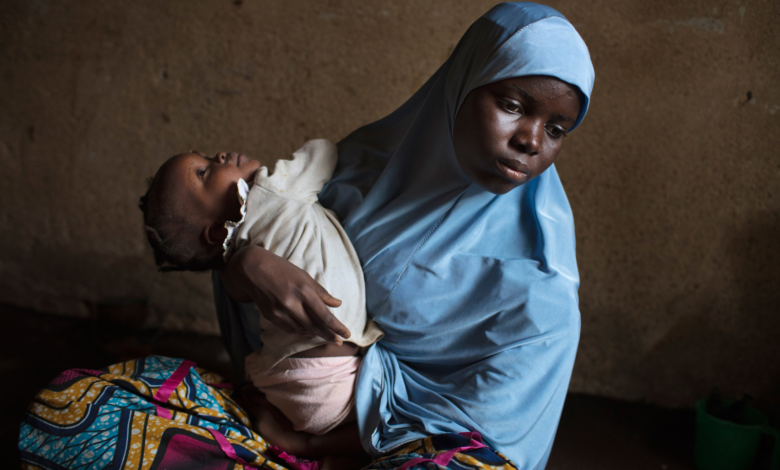Nigeria Is Home To 23.6 Million Child Brides – Report
According to the UNICEF report, there are 60 million child brides in West and Central Africa, and Nigeria has the largest share.

Nigeria remains the country with the highest number of child brides in West and Central Africa, with numbers of girls and women who were first married before the legal age reaching 23.6 million, a report published by UNICEF has revealed.
About 10.3 million of them were married before the age of 15, while 23.6 million women and girls were married before 18.
Child marriages are more prevalent in Jigawa, Katsina, Kebbi, and Sokoto states in northwest Nigeria, including Bauchi State in the northeast.
Marie-Pierre Poirier, the UNICEF Regional Director for West and Central Africa, noted that child marriages impact both girls and boys.
She added that “girls are disproportionately affected [as] gender inequality is one of the main drivers of the practice.”
In Nigeria, only three in 25 young men are first married in childhood, whereas 10 in 25 women are married before they turn 18, and most of those who were married before 18 were married off to partners ten years older and above.
According to the report, the required reduction rate to eliminate child marriages stands at 31.4 per cent, and Nigeria’s reduction rate has stagnated at -0.5 per cent for up to ten years.
“Ending child marriage is a key priority for the African Union,” Poirier stated. “The UNICEF West and Central Africa Regional Office have also prioritised it as one of our eight key results for children.”
She explained that UNICEF’s strategic approach to ending the practice is multisectoral, multipronged and contextualised.
“Experience has shown that key interventions include investments in girls’ access to quality education at scale and social and behaviour change in favour of girls and women’s full and active participation in social and economic life.”
The report also revealed that seven out of ten countries with the highest levels of child marriage worldwide are in West and Central Africa and are also facing worsening humanitarian situations, whether provoked by climate change, food insecurity or growing conditions of conflict.
Support Our Journalism
There are millions of ordinary people affected by conflict in Africa whose stories are missing in the mainstream media. HumAngle is determined to tell those challenging and under-reported stories, hoping that the people impacted by these conflicts will find the safety and security they deserve.
To ensure that we continue to provide public service coverage, we have a small favour to ask you. We want you to be part of our journalistic endeavour by contributing a token to us.
Your donation will further promote a robust, free, and independent media.
Donate HereStay Closer To The Stories That Matter




